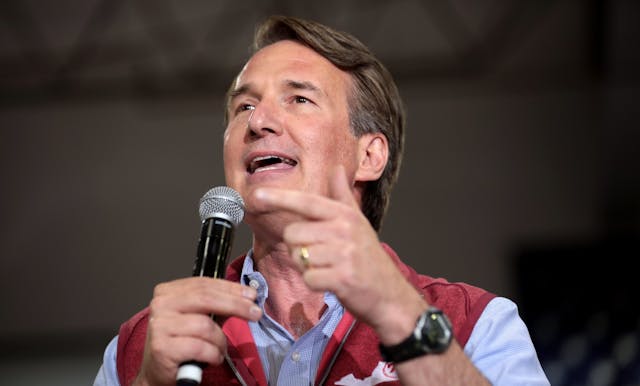Congress Quietly Passes Bill Allowing Feds Unlimited Access to Your Private Communications

calls "the most egregious sections of law" he has encountered during his time in Congress.
"It grants the executive branch virtually unlimited access to the communications of every American," Amash explains.
H.R. 4681, the "Intelligence Authorization Act for 2015," was introduced in May and authorizes appropriations for the government's intelligence agencies and intelligence-related activities for FY 2014-2015. This includes the activities of all federal intelligence, defense, law enforcement, and security agencies and departments. The bill initially passed the House 345-59.
On Tuesday, the Senate passed the bill by voice-vote on the same day the CIA torture report summary from the Senate Intelligence Committee released. A voice-vote essentially means the bill was declared "passed" without the vote being recorded and not very many lawmakers needed to be present for its passage.
However, Senate Intelligence Committee Chairwoman Dianne Feinstein (D-Calif.) added an amendment to the bill that created a new Section 309, requiring it to go back to the House for approval.
Initially, Section 309 required "the heads of the DNI, CIA, DIA, NSA, NRO, and NGA to ensure that there is a full financial audit of their respective entities each year and that each audit contains an unqualified opinion of the entity's financial statements." It required "the chief financial officer of each entity to provide an annual audit report to Congress."
The new Section 309, according to Amash, "authorizes 'the acquisition, retention, and dissemination' of nonpublic communications, including those to and from U.S. persons. The section contemplates that those private communications of Americans, obtained without a court order, may be transferred to domestic law enforcement for criminal investigations."
"To be clear, Sec. 309 provides the first statutory authority for the acquisition, retention, and dissemination of U.S. persons’ private communications obtained without legal process such as a court order or a subpoena. The administration currently may conduct such surveillance under a claim of executive authority, such as E.O. 12333. However, Congress never has approved of using executive authority in that way to capture and use Americans’ private telephone records, electronic communications, or cloud data." - Rep. Justin Amash, letter to fellow members of Congress
On the same day Feinstein decried the actions of the CIA (infringing on the civil liberties of others by using torture) on the Senate floor, she stealthy added an amendment to an appropriations bill that gives the executive branch and law enforcement agencies virtually unlimited access to the private communications of persons (citizens or non-citizens) in the United States without approval from a judge.
The bill was then rushed to the House floor on Wednesday for a voice-vote without much debate. While Amash went before the House to demand a roll call vote, there was not enough time to stop the bill. It passed 325-100, with 9 lawmakers not voting. Forty-five Republicans and 55 Democrats voted "Nay."
Here is a list of the 100 lawmakers who voted "Nay." Was yours one of them?
Amash (R-Mich.)
Bass (D-Calif.)
Bentivolio (R-Mich.)
Blumenauer (D-Ore.)
Bonamici (D-Ore.)
Brat (R-Va.)
Bridenstine (R-Okla)
Brooks (R-Ala.)
Broun (R-Ga.)
Burgess (R-Texas)
Chu (D-Calif.)
Clark (D-Mass.)
Clarke (D-N.Y.)
Clawson (R-Fla.)
Cohen (D-Tenn.)
Conyers (D-Mich.)
Cummings (D-Md.)
DeFazio (D-Ore.)
DelBene (D-Wash.)
DesJarlais (R-Tenn.)
Doggett (D-Texas)
Doyle (D-Penn.)
Duncan (R-S.C.)
Duncan (R-Tenn.)
Eshoo (D-Calif.)
Farr (D-Calif.)
Garamendi (D-Calif.)
Garcia (D-Fla.)
Garrett (R-N.J.)
Gibson (R-N.Y.)
Gohmert (R-Texas)
Gosar (R-Ariz.)Gowdy (R-S.C.)
Graves (R-Ga.)
Grayson (D-Fla.)
Griffith (R-Va.)
Grijalva (D-Ariz.)
Gutiérrez (D-Ill.)
Hahn (D-Calif.)
Hanabusa (D-Hawaii)
Hastings (D-Fla)
Heck (D-Wash.)
Holt (D-N.J.)
Honda (D-Calif.)
Huelskamp (R-Kan.)
Huffman (D-Calif.)
Jackson Lee (D-Texas)
Jones (R-N.C.)
Jordan (R-Ohio)
Kaptur (D-Ohio)
Kildee (D-Mich)
Kingston (R-Ga.)
Labrador (R-Idaho)
Lee (D-Calif.)
Lewis (D-Ga.)
Lofgren (D-Calif.)
Lowenthal (D-Calif.)
Lummis (R-Wyo.)
Massie (R-Ky.)
Matsui (D-Calif.)
McClintock (R-Calif.)
McCollum (D-Minn.)
McDermott (D-Wash.)
McGovern (D-Mass.)
Meadows (R-N.C.)
Mica (R-Fla.)Moore (D-Wis.)
Mulvaney (R-S.C).
Nadler (D-N.Y.)
Nugent (R-Fla.)
O'Rourke (D-Texas)
Pallone (D-N.J.)
Perry (R-Penn.)
Pocan (D-Wis.)
Poe (R-Texas)
Polis (D-Colo.)
Posey (R-Fla.)
Rangel (D-N.Y.)
Ribble (R-Wis.)
Roe (R-Tenn.)
Rohrabacher (R-Calif.)
Salmon (R-Ariz.)
Sanford (R-S.C.)
Schakowsky (D-Ill.)
Scott, Austin (R-Ga.)
Sensenbrenner (R-Wis.)
Serrano (D-N.Y.)
Speier (D-Calif.)
Stockman (R-Texas)
Swalwell (D-Calif.)
Takano (D-Calif.)
Tierney (D-Mass.)
Tipton (R-Colo.)
Velázquez (D-N.Y.)
Waters (D-Calif.)
Weber (R-Texas)
Welch (D-Vt.)
Woodall (R-Ga.)
Yarmuth (D-Ky.)
Yoho (R-Fla.)
Note: It is not fully clear how many of these lawmakers voted against the bill because of the new Section 309.



